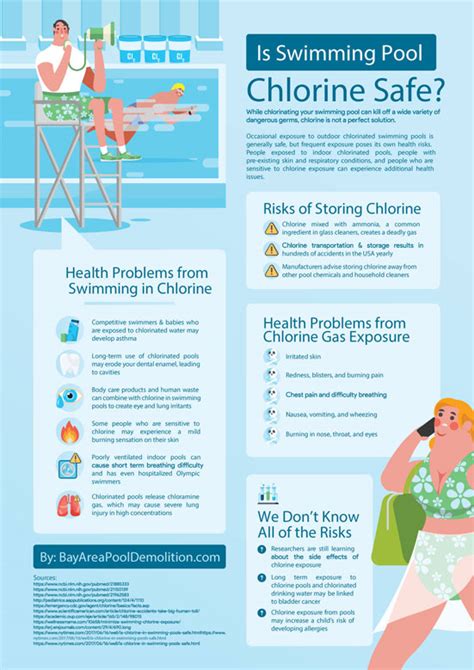Avoid Pool Problems: Understand Chlorine's Role
Maintaining a sparkling, inviting swimming pool requires more than just occasional skimming. Understanding the crucial role chlorine plays is paramount to avoiding common pool problems and ensuring a safe and enjoyable swimming experience for everyone. Chlorine, a powerful disinfectant, is the backbone of effective pool sanitation, but its effectiveness depends on proper understanding and application. This guide will delve into chlorine's role, addressing common questions and concerns.
What is Chlorine's Role in Pool Maintenance?
Chlorine's primary function is to disinfect the pool water, eliminating harmful bacteria, viruses, and algae that can cause illness and cloudiness. It does this by oxidizing these contaminants, effectively breaking them down and rendering them harmless. Without adequate chlorine levels, your pool becomes a breeding ground for microorganisms, creating a health hazard and an unpleasant swimming experience. Beyond disinfection, chlorine also helps to oxidize organic contaminants, such as sweat, sunscreen, leaves, and other debris that can contribute to cloudy water and unpleasant odors.
How Much Chlorine Should I Use?
This is a frequently asked question, and unfortunately, there's no single answer. The ideal chlorine level depends on several factors, including:
- Pool size and type: Larger pools require more chlorine than smaller ones. The type of pool (in-ground, above-ground) also impacts chlorine needs.
- Water temperature: Warmer water requires more chlorine as microorganisms multiply faster in warmer conditions.
- Sunlight exposure: Sunlight degrades chlorine, meaning pools in direct sunlight will need more frequent additions.
- Bather load: More swimmers mean more organic contaminants, necessitating higher chlorine levels.
Consult your pool's instruction manual and consider using a test kit to regularly monitor your chlorine levels. Maintain chlorine within the recommended range (typically 1-3 ppm), and adjust as needed based on the factors mentioned above. Always follow the instructions on your chosen chlorine product carefully.
What Happens if I Don't Use Enough Chlorine?
Insufficient chlorine levels lead to a cascade of problems:
- Algae growth: Algae will thrive in an environment lacking sufficient chlorine, turning your pool green and slimy.
- Bacterial and viral contamination: Harmful microorganisms can proliferate, posing a significant health risk to swimmers.
- Cloudy water: Organic contaminants won't be properly oxidized, resulting in cloudy, murky water.
- Unpleasant odors: The buildup of organic matter will lead to foul smells.
What if I Use Too Much Chlorine?
While too little chlorine is problematic, using excessive amounts isn't ideal either. High chlorine levels can:
- Irritate skin and eyes: High concentrations of chlorine can cause burning sensations, redness, and irritation.
- Damage pool surfaces: High chlorine levels can corrode pool surfaces, especially those made of plaster or concrete.
- Compromise equipment: Excessive chlorine can damage pool pumps, filters, and other equipment.
What are the Different Types of Chlorine?
Several types of chlorine are used for pool sanitation:
- Calcium Hypochlorite (granular or tablet): A common and effective form of chlorine, available in granular or tablet form.
- Sodium Hypochlorite (liquid bleach): A readily available and cost-effective option, but requires more frequent additions.
- Dichlor: A slow-dissolving granular chlorine, suitable for use in feeders.
- Trichlor: A slow-dissolving tablet form of chlorine, commonly used in floating chlorinators.
The best type of chlorine for your pool depends on your preferences, budget, and pool setup. Consult with a pool professional for personalized recommendations.
How Often Should I Test My Pool Water?
Regular water testing is crucial for maintaining proper chlorine levels and overall pool health. Ideally, you should test your pool water at least twice a week, or more frequently during hot weather or periods of heavy use. Use a reliable test kit to measure chlorine, pH, alkalinity, and other important water parameters. Addressing imbalances promptly prevents larger problems down the line.
How Can I Keep My Pool Water Balanced?
Maintaining proper water chemistry is essential for maximizing chlorine's effectiveness. This includes regularly checking and adjusting the pH and alkalinity levels. A balanced pool will require less chlorine, saving you money and effort.
By understanding chlorine's crucial role in pool sanitation and implementing regular testing and maintenance practices, you can avoid common pool problems and enjoy a clean, safe, and enjoyable swimming experience. Remember, consistent attention to water chemistry is key to a healthy and happy pool.

